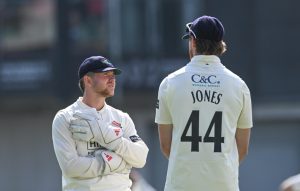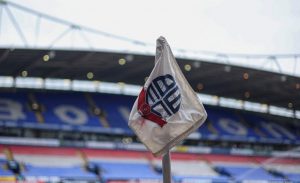Winning machine set to move through the gears again – despite spectre at the feast

Where do treble winners Manchester City go from here? Quadruple, anyone?
Champions City kick-off the 2023-24 Premier League campaign this evening at newly-promoted Burnley, who they beat 6-0 in the FA Cup quarter finals earlier this year.
The perfect platform for Pep Guardiola to mount his Premier League defence and lay down a marker for the rest of the campaign. How City would love to achieve the perfect season, a feat that ultimately beat Liverpool two seasons ago.
Since the Abu Dhabi United Group, owned by Sheikh Mansour ibn Zayed Al Nahyan, acquired a controlling stake in City in 2008 from Thaksin Shinawatra, a former prime minister of Thailand who had bought into the club in 2007, the Cityzens have built a dynasty, crowned by the club’s first Champions League trophy last season at the expense of Inter Milan.
The days of scrapping around in the third tier of English football before being rescued by a last gasp penalty shoot-out play-off promotion in 1999 are firmly consigned to the past.
City are living the high life, a trophy-laden winning machine and a magnet for some of the game’s top talent.
The oil-rich Abu Dhabi owners have steered a steady course, boosted by huge investment, but also on the back of canny diversification.
In May this year City Football Group added a 13th club to its portfolio in Brazilian top tier side, Bahia, joining the likes of Montevideo City Torque in Uruguay and partner club Bolivar in Bolivia, with the rest of the group made up of Manchester City, New York City FC, Melbourne City, Yokohama F Marinos, Girona, Sichuan Jiuniu, Mumbai City, Lommel, Troyes and Palermo.

Ferran Soriano – courtesy MCFC
CFG is investing for the long term in its constituent parts. Announcing the Bahia deal, City CEO, Ferran Soriano, told their supporters: “This is a long term project. Just look at Manchester City, which has won four of the last five Premier Leagues. It has taken 14 years of work to arrive at that point.”
From City’s point of view, the CFG stable also represents a fantastic incubator opportunity for young worldwide football talent.
When the club announced their latest financial figures last November for the 2021-22 season, they were, understandably, at record levels.
Turnover hit £613m, up from £569.85m the previous year, while pre-tax profits of £41.7m compared with £5m the prior season, and were more than double the previous club record.
The club’s wage bill, which includes 549 staff, dropped slightly to £353.9m, while commercial revenues rose to to £309.5m, helped by an increase in sponsors and the return of concerts to the Etihad Stadium.
In January this year the Sky Blues were, for a second consecutive year, confirmed as the world’s richest club in the 26th edition of the Deloitte Football Money League, with Real Madrid and Liverpool trailing in their wake.
Given City’s tremendous treble-winning campaign last year, culminating with the ultimate European prize, the club is likely to maintain its financial superiority as world football’s undisputed king, with revenues expected to exceed £700m.
Funds are being funnelled into attracting the game’s top talent, but also in improving the club’s Etihad Stadium home.
Last month Manchester City Council planning committee approved proposals for a £300m stadium extension, taking the capacity to 62,500, and a new hotel at the North Stand.

Proposed redevelopment (Courtesy Man City)
Danny Wilson, managing director – Manchester City operations, said after the planning committee approval: “We believe these proposals will deliver long term economic and social opportunities, building on the regeneration work delivered in East Manchester by City Football Group since 2008.”
But, like a spectre at the feast, the club is, once again, under investigation as part of Financial Fair Play rules.
In February this year the Premier League announced that, following a four-year probe, it had laid more than 100 charges against City related to alleged financial irregularities.
In 2020 UEFA ruled that City had committed “serious breaches” of FFP regulations between 2012 and 2016, but a subsequent two-year ban from European competitions was overturned by the Court of Arbitration for Sport (Cas) later that year.
The latest matter has been referred to an independent commission. Sanctions against the club could include a fine, points deductions, or expelling the club from the Premier League.
Responding to the allegations at the time, the club said it welcomed the review of this matter by an independent commission, to impartially consider the comprehensive body of irrefutable evidence that exists in support of its position, adding: “As such we look forward to this matter being put to rest once and for all.”
Given the extent of the charges, the case against City could drag on for years. But in the meantime, the club will continue to get on with the business of winning trophies and racking up the revenues.








